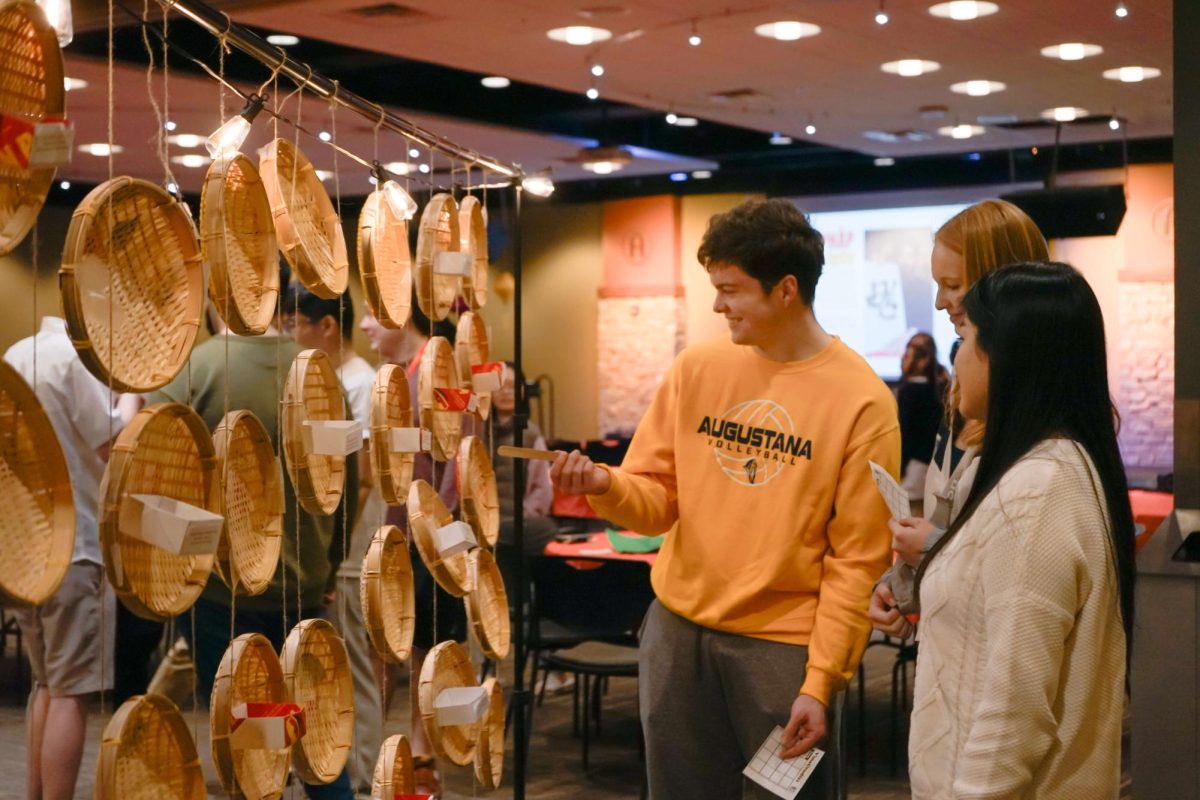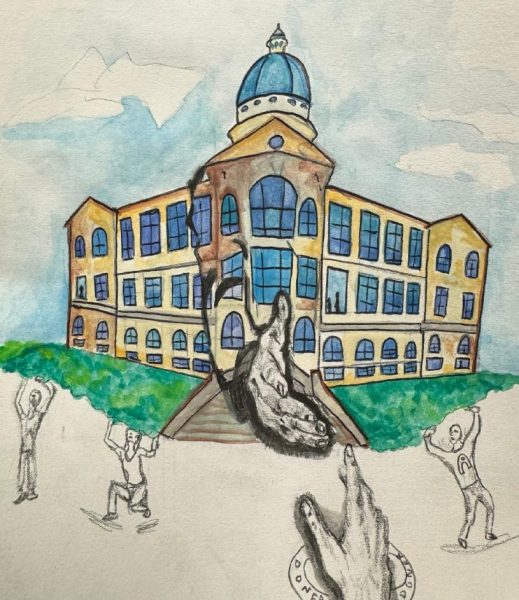The argument for a pay raise for international students
April 29, 2023
11.9% of the student body at Augustana College are international students, which brings diverse perspectives and experiences to the campus across the globe. However, from a student’s perspective, moving to a completely different part of the world is not a piece of cake.
Students may face financial hurdles when pursuing an education, including increasing tuition fees every year, competitive work opportunities on campus and zero opportunities off campus because of visa status.
One potential solution to the issue is to provide international students with a pay raise to help offset these challenges.
International students come to the United States under an F-1 visa, which nullifies the ability to work off-campus. Additionally, the F-1 visa only allows students to work on campus for 20 hours per week. Fewer work hours and minimum wage may not cover the basic living expenses of students living abroad.
Recently, Augustana increased the wage from $9.75 to $11 for those in supervisory or skilled positions. While the raise impacts some student workers, the ratio of international students is even less.
Sophomore Bemni Melesse, an international student from Ethiopia, raised an issue with the pay raise.
“The [administration] do not consider the working situation of all the student workers,” Melesse said. “The students working in CSL or as tour guides in the admissions office have to go through a lot of physical exhaustion due to the demand of their work, but their wage remains the same.”
The 18% who received a raise does not represent all students, as not everyone has jobs with supervisory responsibilities, resulting in many students still being paid under $10 an hour.
Sophomore Gelilla Alemayehu, an international student from Ethiopia, recalls how difficult it is to manage food for students on campus during breaks as the CSL, C-store and snack bar are closed. However, going off campus for food is difficult.
“International students pay more tuition than domestic students. Our parents cannot send money for every indirect cost in college,” Alemayehu said.
Having to afford cooked food and utensils throughout breaks may be difficult for students. With minimal wages and earnings, students are in a financial situation that limits their ability to earn and save money, making it difficult to cover basic expenses.
Even if students decide to work together and cook homemade meals, buying utensils and spices becomes cost inefficient. This can be particularly challenging for those who come from low-income backgrounds and may not have a lot of financial resources to draw upon.
“We are the face of diversity at Augustana, yet our needs are not catered to by the college,” Melesse said.
Some individuals may view a pay raise for only international students as unjust. To address these concerns, it is important to ensure that any policy regarding pay raises or wage increases for students is carefully considered and communicated to the campus community.
“We are hoping for rainbows and unicorns. We are expecting change and not doing anything,” Alemayehu said. “The authorities know our condition but we just voice our talk. We don’t demand change.”
College administration must recognize and address the financial challenges of international students to ensure that they can fully engage in their education and thrive on campus.
International students should not be forced to worry about their finances but should be able to study without any financial burden and enjoy college life, and they should be able to set aside money in order to afford the same opportunities post-graduation as domestic students.





















































































































